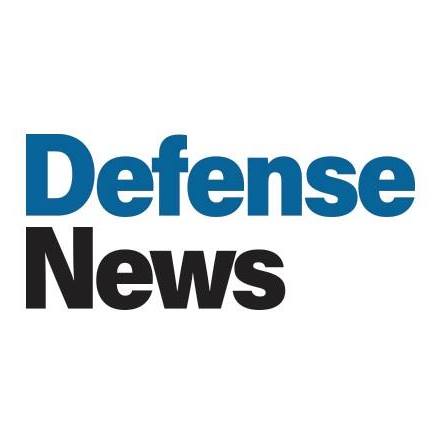



ROME — Italy’s Leonardo is on a shopping spree to beef up Europe’s cyber-defense capability and is targeting Nordic firms to get the job done, CEO Roberto Cingolani has told Defense News.
Cingolani laid out the Italian defense giant’s strategy after announcing a series of new investments during the summer. In July, Leonardo took a €20 million ($23 million), quarter stake in Finnish cyber firm SSH, making Leonardo the largest shareholder and giving it the right to incorporate SSH solutions into its products.
A week later Leonardo said it was buying Swedish cyber specialist Axiomatics, adding to an earlier acquisition of a stake in Swedish start up CanaryBit and a partnership deal with Danish firm Arbit.
“Our recent activity in the Nordic region is not the result of isolated acquisitions, but part of a broader strategic vision to build sovereign and resilient digital ecosystems across Europe,” Cingolani said.
“These initiatives reflect our commitment to strengthening European digital autonomy through technologies and products developed and governed in Europe, for the security and competitiveness of Europe,” Cingolani added.
The CEO said the peculiar qualities of Nordic firms made them key to the plan.
“What makes the region attractive is its combination of cutting-edge digital expertise, mature tech ecosystems, and a strong cultural alignment with the values of transparency, security, and technological independence,” he said.
Both SSH and Axiomatics already work for government agencies and “bring valuable capabilities in areas such as cryptography, secure access, and dynamic authorization — key components for developing trusted European solutions in the defense and critical infrastructure domains,” Cingolani said.
He told Defense News the deals will help Leonardo spearhead a European push towards “Zero Trust” in cyber security.
“The ‘never trust, always verify’ principle is core to the Zero Trust approach,” he said. “This is becoming the benchmark to guarantee high security levels for digital infrastructures, shifting from a traditional cyber security approach – mainly focused on protecting perimeters – to a broader spectrum of cyber resilience. It’s based on a dynamic methodology through which every access is constantly verified, allowing an adequate level of protection for the entire digital infrastructure, from data access to transit and its usage,” he said.
That makes Zero Trust key to defense and critical infrastructure computing, and makes Leonardos investments “a decisive move to build a digital ecosystem secured by key sovereign cyber technologies,” Cingolani claimed.
A physicist by training, Cingolani has sought to put cyber defense at the heart of Leonardo’s core mission since stepping into the CEO role in 2023.
Last year the Italian state-controlled firm announced €648 million in “Cyber and Security Solutions” revenue, with new orders rising 20.4 percent to €833 million.
“The digital space is both a battleground and a strategic asset,” said Cingolani.
“The rapid growth of digitization, combined with the exponential impact of artificial intelligence is transforming how threats emerge and how they must be countered. As platforms become smarter and more connected, the attack surface grows. That makes cyber resilience not optional — but essential,” he said.
“By its nature, the cyber dimension permeates all other domains - air, land, sea, space,” he said, adding, “there can’t be any next-generation combat air, land system, drone, space technology, to name a few, without cyber security by design.”
Tom Kington is the Italy correspondent for Defense News.
